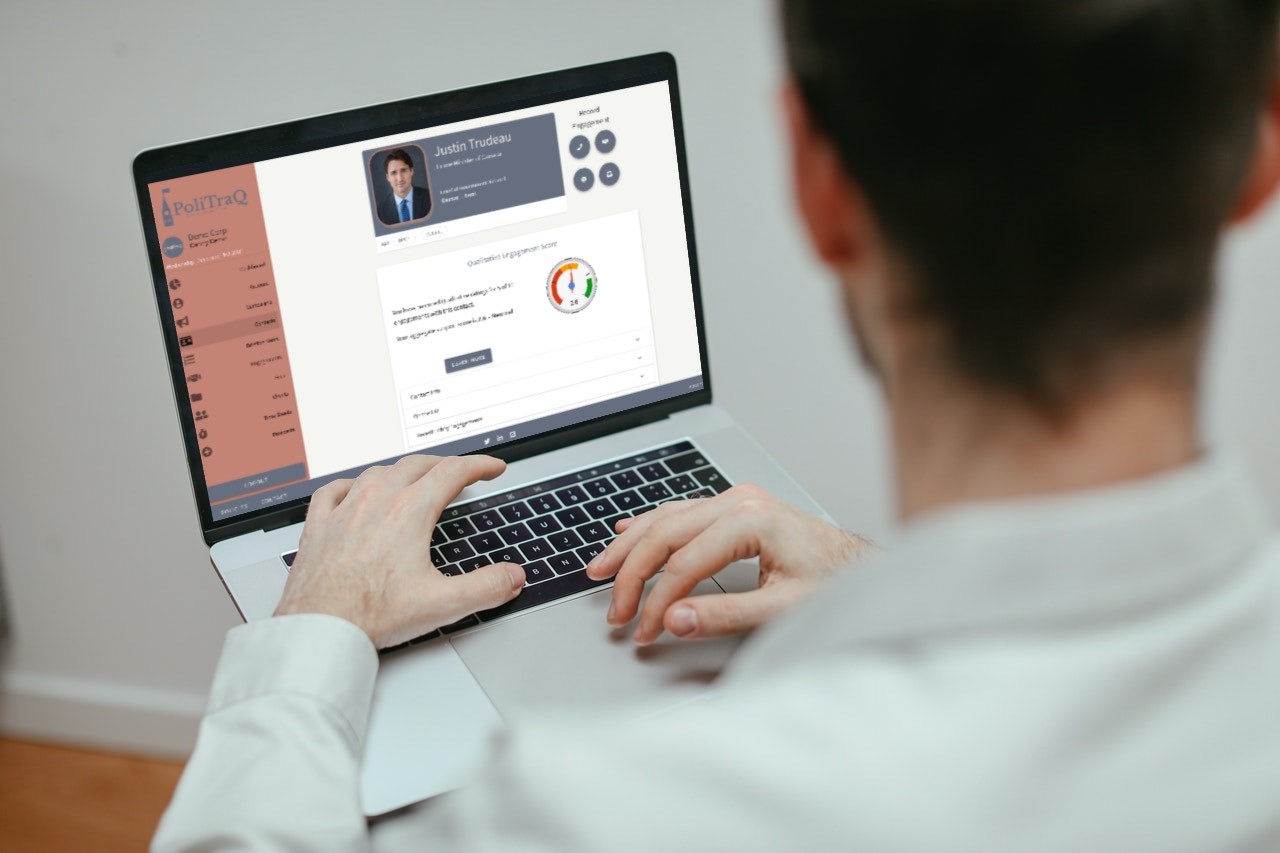Queen’s Partnerships and Innovation’s Wings Accelerator program is aimed at startups in the early, pre-revenue, stages of development. Through a mix of full-day seminars featuring business professionals and one-on-one coaching with accelerator facilitators Elza Seregelyi and Andrew Jackson, Wings gives startup founders the tools and guidance they need to evaluate the feasibility of their business idea, determine what it is they really have to offer customers, and begin developing a working business model. Participants build relationships with other startups, and learn how to create pitch their ideas to potential investors.
Wings is offered through the Scale-Up Platform, an initiative led by Invest Ottawa in Eastern Ontario and in which QPI is a regional partner. The Scale-Up Platform is supported by the Federal Economic Development Agency for Southern Ontario (FedDev Ontario).
You might call Chris Moffatt Armes the “accidental entrepreneur.” He didn’t quite have entrepreneurship “thrust upon him” to borrow from Shakespeare, but it wasn’t what he planned. Fortunately, when an opportunity arose, he was able to draw on Queen’s Partnerships and Innovation (QPI) to help him, particularly its Wings program.
Moffatt Armes works for Queen’s University in its University Relations, as what is commonly known as a lobbyist. He works as part of a team that represents the university and its interests at all three levels of government.

Their behaviour is quite strictly regulated to avoid not only undue influence, but even the suggestion of the same. “Depending on what level of government you are engaging with, there are certain reporting requirements,” says Moffatt Armes. “For example, if you have an oral, pre-arranged meeting with certain categories of federal public office holders, that has to be reported.”
Despite how important this is, says Moffatt Armes, most lobbyists track their outreach in an ad hoc fashion. “You find yourself digging through emails, wads of paper, I‘ve even heard of someone being handed just a stack of business cards with dates written on the back.” Straightening it all out is, he says, a “massive time suck,” that diverts their attention away from working for clients and advancing their objectives. There are software programs out there that come close to what lobbyists need (Moffatt Armes cites Salesforce), but nothing that is specifically geared to their industry’s idiosyncratic requirements.
“In a moment of hubris, I told my boss, ’Give me six months. I’m going to figure out how to build this.” Working at home and in his spare time, he created PoliTraQ. Initially, he had no intention of turning it into a company. “Until I started getting demand from colleagues in other institutions.” By the fall of 2019, “I was at the point where I had an idea – but I had no idea how to go about actually implementing it as a product or as a company.”
Initially he enrolled in a coaching program run by QPI and given by Isabel Perrot. It was then that Rick Boswell, QPI’s Assistant Director of Programs and Operations, mentioned the Wings program to him, as a good fit with where the company was in early 2021.
“It answered so many questions that had been sticking points for the last year and a half,” he says. “I didn’t even know what questions I hadn’t thought to ask.”
Moffatt Armes praises all of the program’s elements, and found working one-on-one with Wings co-director Andrew Jackson on customer discovery particularly fruitful. This is where the prospective entrepreneur is told to go out and survey potential customers to discover what they really want, often an eye-opening experience.
“After chatting with Andrew, I did a mix of new potential customers as well as reaching out to some of my own customers, who were coming up to their one-year renewal,” says Moffatt Armes. “It was really interesting hearing from my own customers. I wasn’t wrong in how the product was being used, but I was wrong in positioning and how I should be talking about the benefits.” He also learned that his customers, actual and potential, wanted more from the platform – new legislation, lobby information, who is talking to whom – and developed a better understanding of the broad range of subjects that affect their work. The discovery process had other benefits as well. “As a result of those calls, I was able to form two new partnerships,” he says.
“Part of the reason I took this program was to set the foundation, so I could take this out as a fully realized owner-operator business. The company has grown this year. We’re on track for five times last year’s revenue. We won’t be Facebook, but there is a substantial market out there.” Ultimately, he hopes to grow PoliTraQ to where there is a team working on it. “There are so many opportunities,” he says. “A big part of the Wings program was seeing all the opportunities that were available.”
 About Vice-Principal Research
About Vice-Principal Research